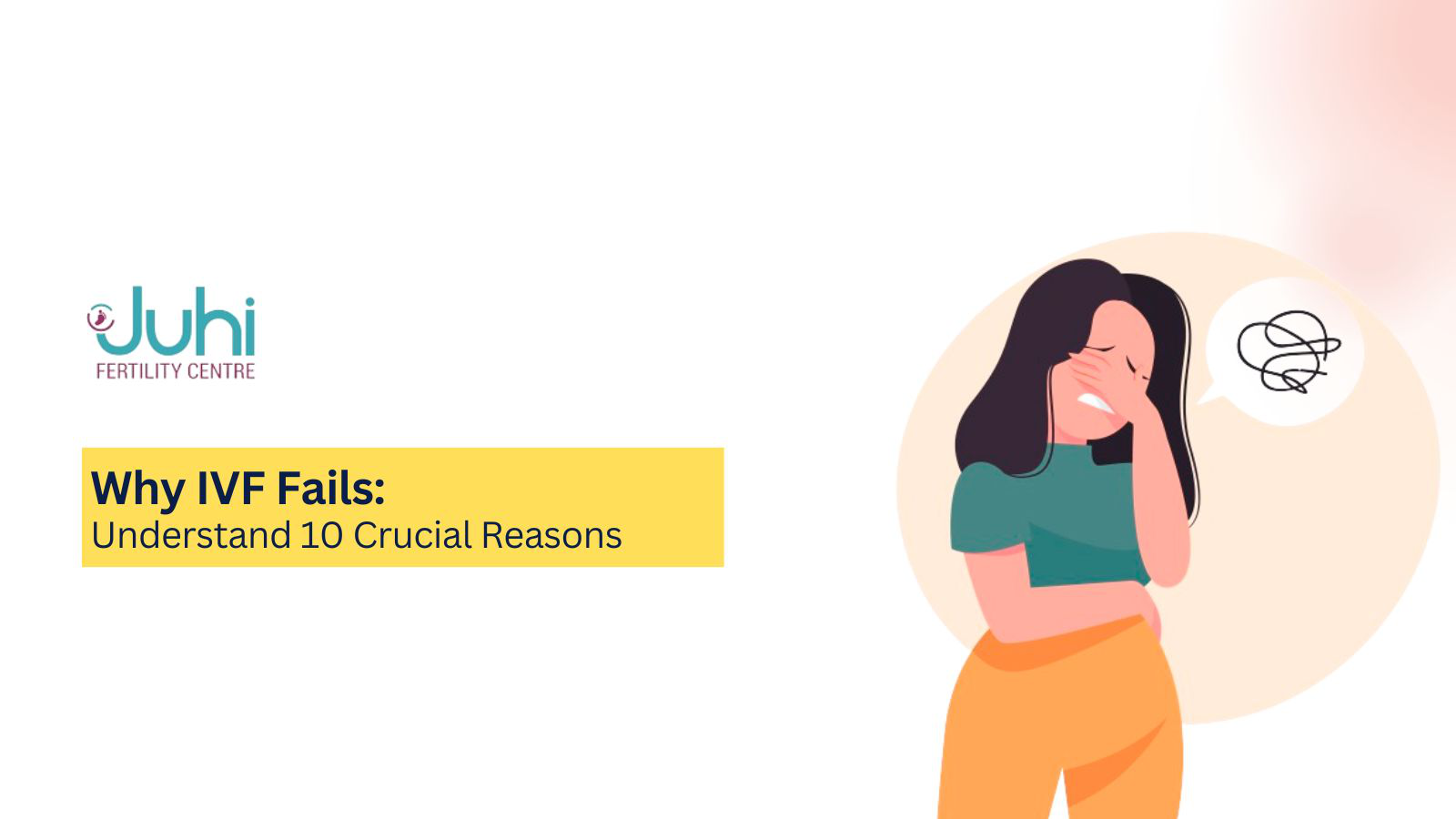Starting IVF is like solving a tricky puzzle step by step. It holds a lot of promise, but sometimes you might hit roadblocks. In vitro fertilization (IVF) is a hopeful option for couples wanting to have a baby, but what if it doesn't work?
IVF is an important part of fertility treatments, and when it doesn't succeed, it can be emotionally and financially tough. People going through this need to understand why it might not be working. In this article, we'll talk about the top 10 reasons why IVF might not succeed. Our goal is to inform and support those going through the challenging process of fertility treatments. Remember, you're not alone, and there's still hope even if there are obstacles.
Top 10 Causes of IVF Failure
IVF not working can be really tough, so it's important to understand why.
Embryo Quality: The quality of the embryos is crucial for IVF success. Embryos are like puzzle pieces, and poorly made ones may not attach properly or cause early miscarriage. Tests like pre-implantation genetic diagnosis (PGD) can help find these issues before putting the embryo in.
Age: A woman's age affects IVF success a lot. It gets more and more difficult to have a baby as women get older, especially after 35, because the number and quality of eggs go down. Younger women usually have better chances. Women over 40 tend to face more challenges.
Uterine Issues: The uterus may have problems that stop the embryo from sticking. Things like fibroids or polyps can get in the way. Fixing these issues before IVF can help.
Ovarian Issues: Ovaries are super important for IVF. Too much reaction to fertility medicines or not enough response can cause problems. Having fewer eggs can reduce the chances of success. Ovarian issues can also lead to medical problems.
Sperm Quality: Good sperm is crucial. If sperm quality is poor, it can make fertilization and embryo development difficult. Tests can be done in severe cases.
Genetics: Genetic issues in the parents can affect the embryo's health. This may lead to trouble with the embryo sticking or more miscarriages. Tests can help find these issues before using the embryo.
Implantation Failure: Sometimes the embryo doesn't connect well to the uterus. This can be because of problems with the embryo or the uterus. Treating hormone imbalances or using procedures like IUI might help.
Endometriosis: This is a condition where tissue like the uterine lining grows outside the uterus. It can affect IVF and fertility by causing swelling and scarring. Surgery may help some people.
Anxiety and Stress: Stress can mess with hormones and blood flow, affecting IVF. Doing things like meditation and getting support from a counselor can help manage stress.
Lifestyle Factors: Lifestyle is extremely important. Being overweight, heavy drinking, and smoking can hurt IVF results. Leading a healthy lifestyle can increase the chances of success. Smoking, in particular, is bad for IVF.
Understanding these reasons can help you navigate the challenges and remember, there's still hope despite setbacks.
How Can You Cope With IVF Failure?
If IVF doesn't work and you're feeling down, here are some practical tips to help you:
Get Support: Talk to friends, family, or a therapist who understands fertility challenges. They can offer emotional support.
Remember You're Not Alone: Lots of people go through this, and talking about your feelings can make you feel better.
Take a Break: Give yourself some time to rest and recover both physically and mentally. Think about what you want to do next.
Explore Other Options: Consider different paths like adoption or using donated eggs or sperm.
Take Care of Yourself: Focus on self-care by doing things you love, like hobbies that make you happy.
Stay Positive: Keep a positive mindset and be open to whatever the future holds. There are still possibilities ahead.
Changing Your Daily Life
IVF treatment can affect your daily activities in different ways. Some parts of the treatment are easy to predict, but others, like when appointments and procedures happen or how you'll feel, are less certain. This uncertainty makes it hard to make plans and stick to activities leading up to and during treatment. It might also mean having to cancel plans or back out at the last moment, which can be frustrating and unsatisfying, and might cost money.
Final Words
Remember that even though these challenges are real, you can overcome them by working closely with your fertility experts to understand why IVF treatments may not be working. The key is to stay determined, and seeking expert guidance is important.
At Juhi Fertility Center, we offer advanced treatments for infertility issues tailored to your specific needs. Our comprehensive care includes emotional support, thorough diagnostics, and personalized solutions for conditions such as removing endometriotic lesions, uterine fibroids, ovarian cysts, polyps, and adhesions, as well as managing tubal pathologies, uterine and pelvic anomalies, and congenital disorders of the reproductive tract.
Throughout your journey, we ensure you receive attentive and personalized treatment from beginning to end. If you've faced challenges, don't lose hope; you can still take steps to become a parent. With the right support and knowledge, you can navigate these difficulties and increase your chances of a successful IVF experience.
Leave a Reply
Your email address will not be published. Required fields are marked *
